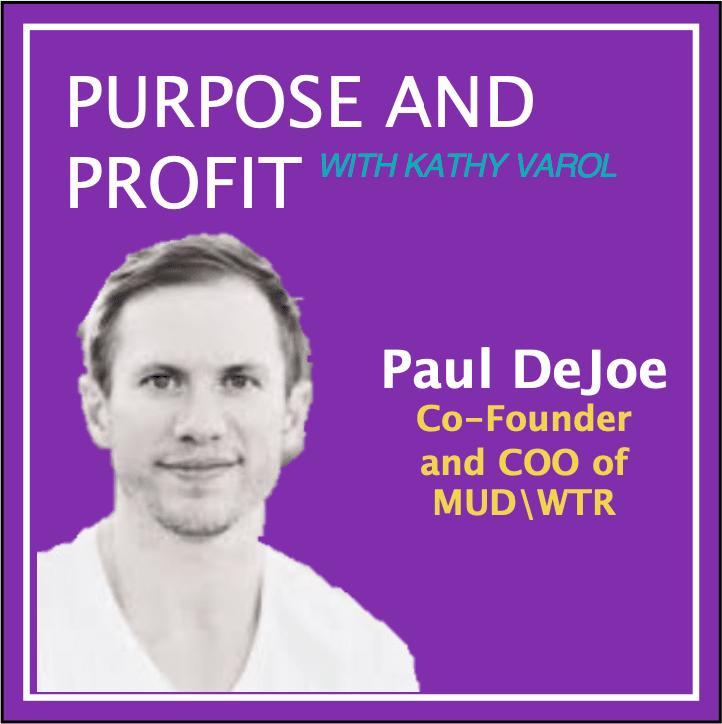Show Notes:
Paul DeJoe is a Co-Founder and COO of MUD\WTR, a company that creates a coffee alternative aimed to optimize one’s mind, body and ritual. Their product is made with organic ingredients used by cultures young and old for their health and performance benefits. The flagship product is an elixir consisting of masala chai, cacao, turmeric, cinnamon, sea salt and four mushrooms: chaga, reishi, lion’s mane and cordyceps. It has 1/7th the caffeine of coffee, and is crafted to give energy, focus and immune benefits without the jitters, crash and dependency.
To find out more about MUD\WTR, check out their website.
In this episode we discuss:
- How a mind-opening concert experience lead to the creation of MUD\WTR
- The importance of ritual, and the equal importance of periodically evaluating our habits
- The challenge of competing with one of the most widely used addictive substances
- Creating a company culture that reduces anxiety and leaves space for 10x ideas to grow
- Neuroplasticity. What it is. Why we want it. And how to encourage it.
Key Takeaways:
- It was refreshing to hear how MUD\WTR built their employee benefits from a blank slate. How they intentionally consider what it is that they’re trying to create, and experiment with the best way to create it—with curiosity, checking in on what’s working and what’s not, and adjusting as needed. I can’t help but think what a gift it can be when there isn’t a playbook to follow, when there isn’t someone to copy from. It’s a slippery slope, and a sticky trap, doing things the way you “should” be doing them.
- When we humbly, and vulnerably share with each other the obstacles in life we’ve personally wrestled with, it allows others to see us more clearly, and it helps break the unhealthy curated narratives we’re constantly surrounded by. It’s sharing that allows us to connect deeply and understand we aren’t alone.
- As a leader, it’s part of your job to ensure your employees aren’t burning themselves out. We have created a culture that wears burnout, lack of sleep and “busy” as badges of honor. It’s going to take intention to break that culture and replace it with balance. Your employees, and your company, will be better for it. As a leader it’s up to you to lean in with curiosity, test and find creative ways to instill a culture of balance, and (equally important) to model that behavior yourself.
References:
- Follow MUD\WTR on Instagram
- National Center for Biotechnology Information page for the CYP1A2 gene
- Trends With Benefits
- Atomic Habits: An Easy & Proven Way to Build Good Habits & Break Bad Ones by James Clear
- MUD\WTR Co-Founder Shane Heath’s interview in Thrive Global
- Frontiers in Psychology article on neuroplasticity
- The Brain’s Way of Healing: Remarkable Discoveries and Recoveries from the Frontiers of Neuroplasticity by Norman Doidge
- Multidisciplinary Association for Psychedelic Studies (MAPS)
- Eight Sleep
- Oura Ring
- Pachama
Paul has graciously invited entrepreneurs to reach out for advice. You can email him here.

